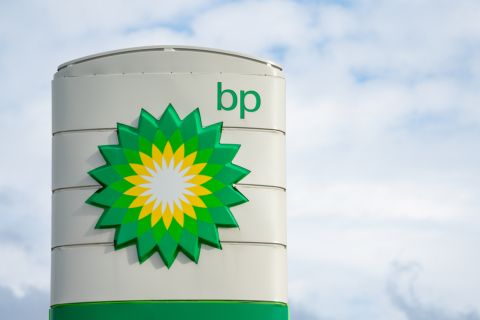Moscow said Ukrainian artillery had hit a town inside Russia for a third time this week and reported drone strikes on two Russian oil refineries on May 31, while Ukrainian shelling in Russian-occupied eastern Ukraine killed five people.
There was no immediate comment from Ukraine on the Russian reports, in a week when both countries accused each other of spreading terror in their capitals with air attacks as Ukraine prepares a Western-backed push to end Russia's invasion.
Thousands of civilians have been killed in Ukraine since Moscow's forces invaded 15 months ago, but May 30 marked only the second time Moscow had come under direct fire, although oil and military facilities in Russia have been hit.
In the Russian town of Shebekino, two of four wounded people were hospitalized and shells damaged an apartment building, four homes and a school, regional governor Vyacheslav Gladkov said.
On May 29, Gladkov said two industrial facilities in the town had been hit and on May 27 that he had come under artillery fire when trying to enter the town, about 7 km (4.5 miles) north of the border with Ukraine.
The Kremlin said it was concerned by the shelling.
Both sides say they are targeting the buildup of each other's forces and military equipment ahead of Ukraine's counteroffensive, which it says will come in days or weeks, to try to drive Russian forces out of its east and south.
Russian-installed officials in Ukraine's eastern Luhansk region - one of four Moscow claims to have annexed - said Ukraine had used U.S.-made HIMARS rocket launchers to attack a farm in Karpaty village overnight, killing five people and wounding 19.
Ukraine's general staff said its forces had fended off 22 Russian attacks in eastern Ukraine over the past day and Ukrainian aircraft had carried out 11 strikes on Russian personnel and military equipment, without specifying where.
Russia's defense ministry said it had pushed Ukrainian forces back around two settlements in Donetsk region, part of a 1,000 km front line that has barely moved despite months of gruelling battles that have cost tens of thousands of lives.
It also said it had destroyed Ukraine's "last warship" during a missile strike on Odesa, without providing evidence.
Oleh Chalyk, a spokesperson for the Ukrainian navy, declined to comment, saying he would not respond to any assertions made by Russia.
He said the navy would not disclose any information about losses during the war.
Reuters was not able to verify either side's reports.
REFINERIES HIT
Drones attacked two oil refineries 40-50 miles (65-80 km) east of Russia's biggest oil export terminals on May 31, according to Russian officials who did not attribute blame.
A fire broke out at the Afipsky refinery but was later extinguished and a drone crashed into the Ilsky refinery without damaging it, they said, in what was the latest of several reported attacks there this month.
The skies over Ukraine were relatively quiet the night of May 30, with no major air raids reported after waves of attacks over the previous 24 hours. Russian drone strikes killed one person and wounded four in Kyiv on May 30, according to Ukrainian officials.
Ukrainian drones struck wealthy districts of Moscow on May 30 and two people were injured while some apartment blocks were briefly evacuated, according to Moscow's mayor. The Kremlin said Moscow's air defenses worked effectively but had room for improvement.
Mykhailo Podolyak, a Ukrainian presidential aide, denied Kyiv was directly involved but said "we are pleased to watch events" and forecast more such strikes.
WAR OF WORDS
Russia's envoy accused Washington of encouraging Kyiv after the attack. The White House had said it was gathering information on the incident and reiterated that Washington does not support attacks inside Russia.
A senior Russian official also hit out at Britain after British Foreign Secretary James Cleverly was reported to have said Ukraine had a right to project force beyond its borders.
Any British officials who facilitated war in Ukraine could be considered legitimate military targets, Russian Security Council Deputy Chairman Dmitry Medvedev said.
Russia has noted "the lack of condemnation" by the United States and Britain of the attack on Moscow, Kremlin spokesman Dmitry Peskov said.
Washington and London are major suppliers of weaponry to Ukraine on the condition it uses it to defend itself and to retake Ukrainian territory occupied by Russian forces, which they say have launched an unprovoked war of conquest.
Russia's invasion of Ukraine, which it calls a "special military operation" to neutralize a threat from Kyiv's moves towards the West, has caused global economic turmoil and prompted fears renewed fighting will prompt a nuclear disaster.
International Atomic Energy Agency (IAEA) chief Rafael Grossi laid out five principles at a U.N. Security Council meeting on May 30 to try to safeguard the Russian-occupied Zaporizhzhia nuclear power plant in southern Ukraine.
Neither Russia nor Ukraine committed to respect them.
Recommended Reading
SLB’s ChampionX Acquisition Key to Production Recovery Market
2024-04-21 - During a quarterly earnings call, SLB CEO Olivier Le Peuch highlighted the production recovery market as a key part of the company’s growth strategy.
PHX Minerals’ Borrowing Base Reaffirmed
2024-04-19 - PHX Minerals said the company’s credit facility was extended through Sept. 1, 2028.
BP Restructures, Reduces Executive Team to 10
2024-04-18 - BP said the organizational changes will reduce duplication and reporting line complexity.
Matador Resources Announces Quarterly Cash Dividend
2024-04-18 - Matador Resources’ dividend is payable on June 7 to shareholders of record by May 17.
EQT Declares Quarterly Dividend
2024-04-18 - EQT Corp.’s dividend is payable June 1 to shareholders of record by May 8.





